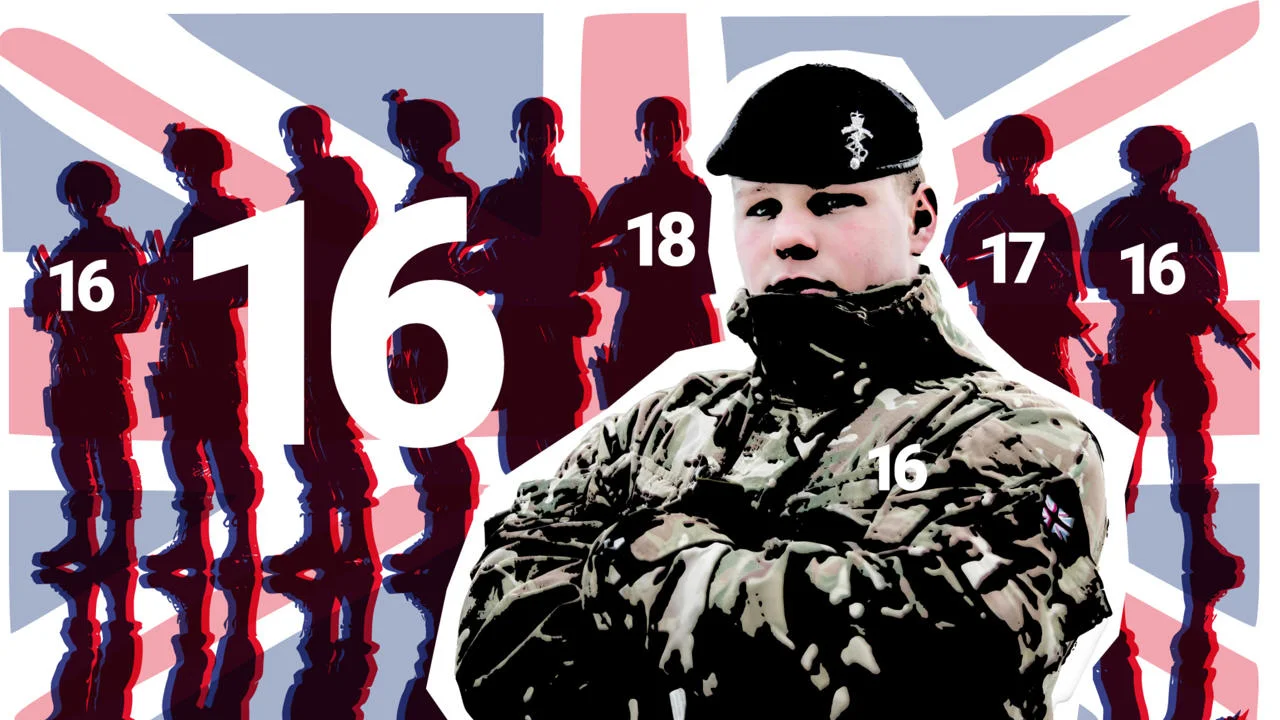The moral failings of UK military recruitment

Contents
Rising global conflict and defence cuts have sparked discussion around whether the UK should bring back conscription. While the suggestion has so far been rejected by Downing Street, it has shone a spotlight on the issue of military recruitment. Without conscription, the army must attract people to its ranks. But in its bid to encourage people to join one of society’s most dangerous professions, is the state placing some of its citizens at more risk than others?
Dr Jonathan Parry, Assistant Professor in the Department of Philosophy, Logic and Scientific Method at LSE, believes that the British army is failing in its responsibility to recruit fairly. His recent paper, co-authored with Dr Christina Easton (University of Warwick), explores the ethics of army recruitment.
They argue that the military is not just a job like any other, but a distinctively morally risky profession. This means that, alongside the physical and psychological risks, military personnel are exposed to an increased risk of participating in serious moral wrongs. "To quote General Sir Michael Rose, ‘No other group in society is required either to kill other human beings, or expressly sacrifice themselves for the nation’. So when we reflect on our country’s recruitment practices, it’s important to ask how this moral risk is being distributed within society," says Dr Parry.
If we care about the quality of people’s lives, we should also care about reducing their exposure to unnecessary moral risk.
What is moral risk?
War involves many destructive acts, from killing and maiming to destroying homes and livelihoods, forcing people to flee their homes and many other horrors. When the use of armed force is unjustified, its participants are involved (however blamelessly) in committing serious moral wrongs. Even justified military operations risk inflicting disproportionate harms on a population, or even the potential of committing war crimes.
Committing (or helping others to commit) a serious moral wrong leaves a deep mark on a person’s life – as well as often causing psychological harm, Dr Parry explains. While any form of conflict can be traumatic, the personal impacts of acting against one’s moral beliefs can be especially high, and moral injury has been linked to adverse mental health outcomes for veterans.
Unlike physical or psychological injury, moral risk is difficult to measure. Nevertheless, it is a concept that should be placed front and centre when designing army recruitment policy, Dr Parry believes. With soldiers facing a significantly higher risk of participating in grave moral wrongs than most other roles, the question of who is recruited, and how, becomes even more important.
He explains: "If we care about the quality of people’s lives, we should also care about reducing their exposure to unnecessary moral risk. So we should ask ourselves, do we think recruitment is being done in a way which minimises the risks involved? Is it being done fairly? Or is it concentrating moral risk on certain people?"
The British army fares particularly badly against these questions, says Dr Parry. Citing its campaigns targeting school-aged adolescents from disadvantaged communities, he argues that the UK is currently failing in its duty to protect and promote the moral wellbeing of its recruits.
Generally, 16-year-olds make terrible decisions. That's why we don't let them smoke or drink or take out mortgages.
Too young to fight?
"Britain recruits child soldiers – that's the headline," Dr Parry says. "And that’s very distinctive. Very few countries do this – it's an ‘honour’ we share with Iran and North Korea."
As a result of this particularly low age threshold, the British army also contains a higher proportion of under-18s than its allies – a quarter of its intake is aged 18 or below, compared to just six per cent in the US and three per cent in France, which restrict recruitment below the age of 17. This is particularly concerning with regards to moral risk, explains Dr Parry, because, as adolescents, these soldiers have an increased risk of behaving impulsively or engaging in potentially risky group peer pressure behaviours than their more mature comrades.
"Generally, 16-year-olds make terrible decisions. That's why we don't let them smoke or drink or take out mortgages. They’re not even allowed to buy graphic computer games which depict violence in war. But training to be the people who carry out that violence? That’s apparently fine," he continues.
"For all these reasons, we think one vector of moral risk that's particularly distinctive in the UK context is the young age it accepts people into the army."
Targeting the poor and socioeconomically disadvantaged
In addition to the youth of its soldiers, the UK is also too inclined to target adolescents from its most disadvantaged communities and lowest income families, Dr Parry argues. These young people are more likely to be sent to fight on the front line, placing them at greater risk of moral and physical harm than their older and more advantaged counterparts.
"This is a ripe demographic, because these are young people who often don't have that many great options on the table. The army pitches itself as an alternative offer to those people who traditional schooling has failed. But the standard of educational provision offered by army forces’ colleges tends to fall far below the level offered to children in non-army schools," he says.
As a result, a significant percentage of 16-year-olds joining the army have a reading age of 11 and below, placing these vulnerable recruits at even greater risk of moral harm. "It is much more morally risky to recruit somebody who can’t read well enough to understand the recruitment contract they are signing, or to do some background research into what they are getting into," says Dr Parry.
"So not only is the army picking people who are less well equipped to deal with moral risk, it is also concentrating the societal share of moral risk on a subset of the population who are disadvantaged in all sorts of other ways."
The way the military is currently pitched to young people is very problematic if you care about moral risk.
A job for heroes: we need to stop glamourising the military
Dr Parry's third criticism focuses on the army’s marketing and the efforts it has taken to embed itself within the school system. While not just a UK issue, the army’s links with education are particularly profound in the UK, which has seen military presence within schools increase as government funding has declined.
This has included initiatives like British Army Supporting Education, which provides free resources, including an "Elite Skills Academy" for children as young as 14, or Combined Cadet Forces units, which are now found in over 500 secondary schools – all ways for the military to carefully curate its image as a career full of exciting and rewarding opportunities.
"The way the military is currently pitched to young people is very problematic if you care about moral risk," says Dr Parry. "It’s all about adventure and travelling the world, making friends and doing humanitarian relief. That’s the message. Let’s not talk about the killing. Let’s not talk about the moral burden of having to do this very difficult job."
Aim these messages at young people who may feel they have few options to choose from – the army’s prime advertising time is the days following GCSE and A Level results day – and we have a sector hoovering up recruits who will have little knowledge of the realities of what they are signing up to do.
Although Dr Parry would like to see a change in approach in the way the military engages with young people, he is clear this doesn’t mean the sector can't promote itself as a legitimate career. "I don’t have a problem with talking to people about the military – I actually think we should do it more – but we need to do it in a different way," he concludes.
"We also need to ensure that people are not many times more likely to have to do this very morally dangerous job if they’re poor than if they’re rich. Because the issue of moral risk is a problem for all of us. We all have a role to play in fostering an environment which doesn't impose gratuitous moral risks on people and which doesn’t shift our collective moral burdens onto working-class kids."
Dr Jonathan Parry was speaking to Jess Winterstein, Deputy Head of Media Relations at LSE.
Download this article as a print-optimised PDF [281KB].




